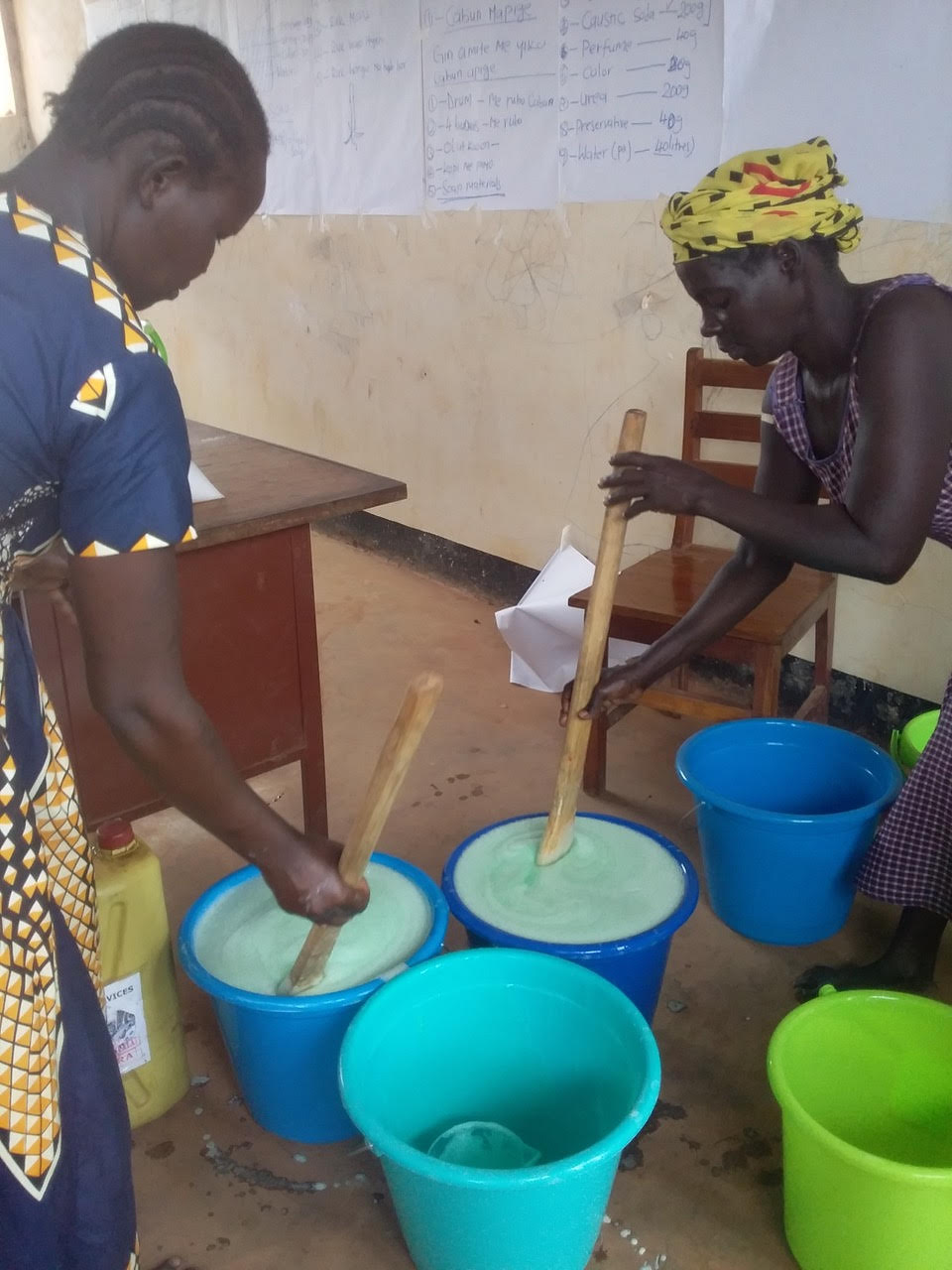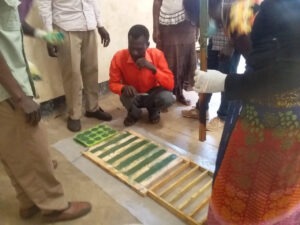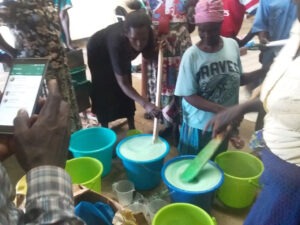“As women, this project is such a good one. Soap is quite expensive for our families, and women being the main users of soap face profound challenges. Soap making needs to be an initiative so it can be readily available in our households, and also as an
income generation initiative”
– Secretary of Gum-pa-Rwot (EEA)
“We’d like to thank LWF and WNSP for organizing such a training which teaches local communities to use locally available and cheap raw materials (shea butter). This demonstrated the available market and potential of the local communities taking up soap making from shea butter as an income generation initiative”
– Puranga Sub-County Community Development Officer (CDO)

Lutheran World Federation (LWF) contracted Women and Sanitation Promotion (WNSP) in March 2021 to train communities in Acholi Sub-region on soap making. LWF has organized local communities’ in Kitgum, Lamwo and Pader Districts of Northern Uganda into Community-Based Green Micro and Small Enterprises (MSEs). Each MSE consist of about 19 women and 8 men. The MSEs are also organized into fairly larger groups called Eco-Entrepreneur Associations (EEAs) which work together to process and produce liquid and bar soap from shea butter. The EEAs are also supported to take up bee keeping and honey production for economic purposes.
LWF’s work focuses on supporting local communities to boost their socio-economic empowerment through producing soap from locally available materials such as shea butter. This closely resonates with WNSP’s work and WNSP was more than pleased to work with LWF to increase local communities’ socio-economic capacity.
WNSP encourages the exploration of other benefits the shea tree provides such as shea butter which can be consumed as cooking fat or as fat for soap making. These alternative uses promote the preservation of the shea tree while promoting local communities’ socio-economic empowerment.
Soap made from shea butter has major benefits that include:
Moisturizing: Shea butter is full of vitamins that are great for the skin, including vitamins A, E, and F. It also contains linolenic acid and other types of fatty acids the skin needs.
Softens the skin: Shea butter soap is less harsh than other types of soap. This combined with its moisturizing properties will leave the skin feeling smooth and soft.
Anti-inflammatory: Shea butter comprises lupeol cinnamate which gives it anti-inflammatory properties. When one washes rashes and irritated skin with shea butter soap, the inflammation can go down. Not only that, the soap will also clean and disinfect the area to promote faster healing.
Anti-bacterial components: Along with being anti-inflammatory, shea butter soap has many antibacterial qualities as well.
One of the best parts about this soap is that anyone can use it.
It was because of these benefits that WNSP chose to partner with LWF to support local communities’ socio-economic empowerment through processing and production of liquid and bar soap from shea butter. Shea butter soap has a big market in Uganda and abroad. Local communities in Northern Uganda where the shea tree grows naturally should take advantage of the great economic benefit in soap making from shea butter to boost their income. Besides boosting income, local communities’ hygiene will be improved due to access to cheap and locally made soap.
Conclusion
Soap is essential commodity in all households, women and children are the most users of soap. Inadequate soap suppliers have had direct impacts on household hygiene. Meanwhile, poor household hygiene has a bearing on domestic violence – husbands tend to blame or even torture wives due to this. Therefore, any initiative which creates or avails soap at local level supports to reduce domestic violence as well as provide an opportunity for local community members to take-up soap making as an income generation initiative. Also, poor hygiene is associated with hygiene and sanitation related sickness and disease which end up depriving households of their hard-earned income which they would have instead used for other developmental initiatives. Liquid soap can also be used for spraying bedbugs in the houses and deworming their livestock.




Recent Comments